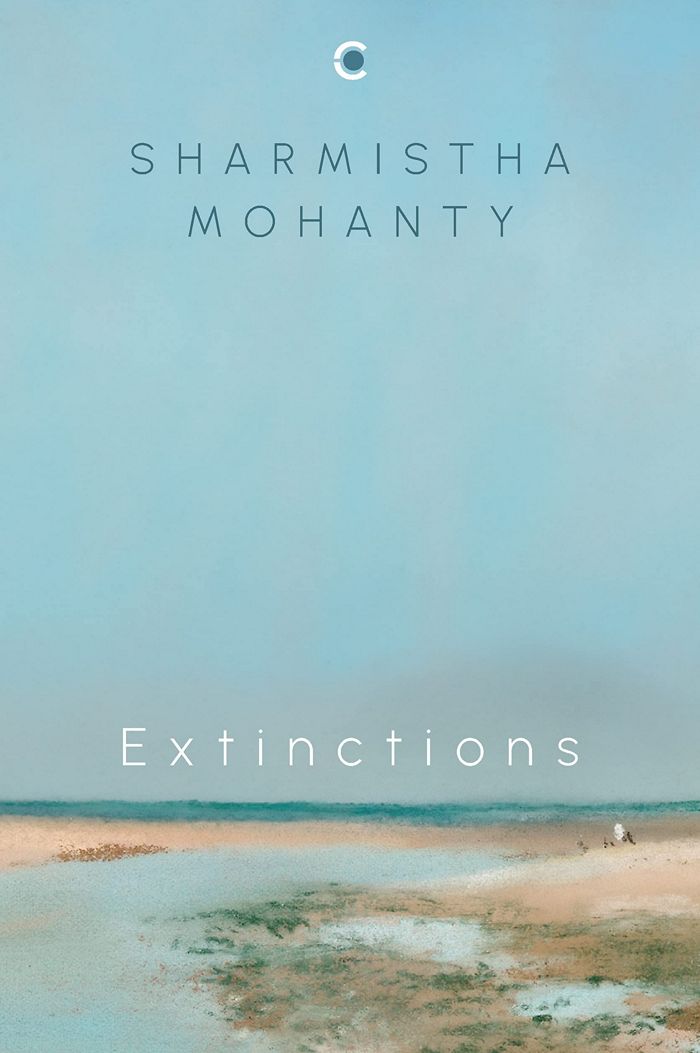Extinctions by Sharmistha Mohanty. Westland. Pages 112. Rs 699
Book Title: Extinctions
Author: Sharmistha Mohanty
Akshaya Kumar
What used to take millions of years to go extinct, now disappear in a measurable time. Species, rituals, seasons, objects, institutions, all time-tested, fairly sedimented events, practices and cycles face a very erratic, bleak future. To encompass this apocalyptic rampage in a creative stride, that too through a limited legacy of human language, is a challenge that Sharmistha Mohanty ventures to undertake in ‘Extinctions’.
Conventional literary genres or routine grammarly protocols cannot bear the burden of expressing extinctions. What one encounters in the collection, therefore, are neither poems nor simple prose essays, but an array of trans-generic impressions, observations, memories, notes and musings arranged without any regular architecture. Each entry is a long breath-exhausting sentence which runs at times into two-three pages, sustained by commas and colons for readerly support.
Right in the beginning, she takes us to a ‘street’ with an unbridled flourish. Images cascade into the other, seamlessly turning the mundane street into an animate ensemble of buildings, vendors, trees, imported cars, statues, gutters and service providers like cooks and chowkidars. During ‘spring’, the smoggy street turns “like a flame in a windless place”, where birds do not come to their trees. The explosive sound of the falling fishtail palm tree sends shivers “into the corners of the room into dishes and bookshelves”. In the call of a street vendor, and the haggling customers, the writer discovers an enduring drama of life sans any metaphysics. The call of a boatman is “not a question or an answer. It is being calling to itself”. The racy descriptions, which otherwise are condemned to be prosaic, in the hands of Mohanty acquire a palpable poetic quotient.
When all frames falter and fail, the writer goes back to things and processes as they are, without resorting to the usual metaphorical gloss. The process of making kajol from a lamp is graphically captured with the subtlest of observation that yields its profound ironies: “Light creates its opposite — a deep darkness”. At times Mohanty digs deep into the anthropological antecedents of the things, rituals and gestures under gaze to draw the lineages of the present. The alluvial soil draws its fecundity from a fluctuating past that consists of “ashes of ancestors gone”, “the sweet brown sap of the date palm”, “bits of conch shells”, “torn saris”, “pieces of sail”, and “the gleam of grandmother’s love” — each decaying at its own pace.
Mohanty turns static stone-carved images, photo stills and museum artifacts into sites of dynamic energy as she subjects them to ekphrastic reading with her penetrative, descriptive eye. The smile on the face of a figurine carved in stone — “not of delight or satisfaction” — sends the writer into a philosophical frenzy. An engaging look at a miniature painting by a disciple of Nainsukh depicting Lord Ram crossing the swollen Ganga on his way to exile yields its own conclusions: “Movement is the centre of this painting, its end unknown”.
Mohanty offers etymological explanations of archaic Sanskrit words such as abhimaan, rta, guru and karuna whose profound meanings we have lost in the age of media verbiage.
‘Extinctions’ is more eloquent about a refulgent organic past than about a mournful moronic present. Mohanty is at ease when she recounts the ‘gestures’ of grandparents or the micro-history of muslin cloth or the intricacies of kantha. Lapsing in ancient times yields its own poetic surplus, but dealing with the prosaic present is a challenge she struggles with. She allows her writerly instincts a free run, and in the process, throws authorly obligations to the wind. Therein lies her success and failure both.














